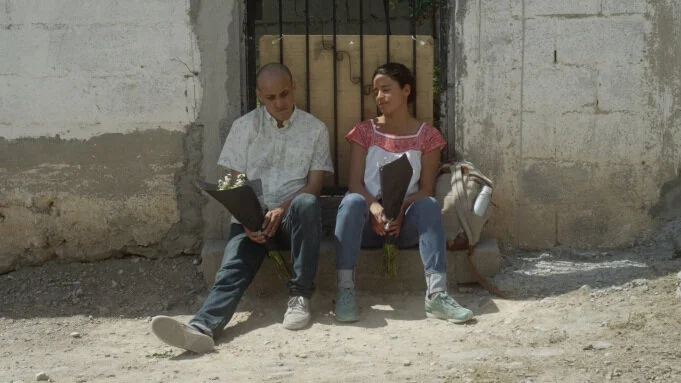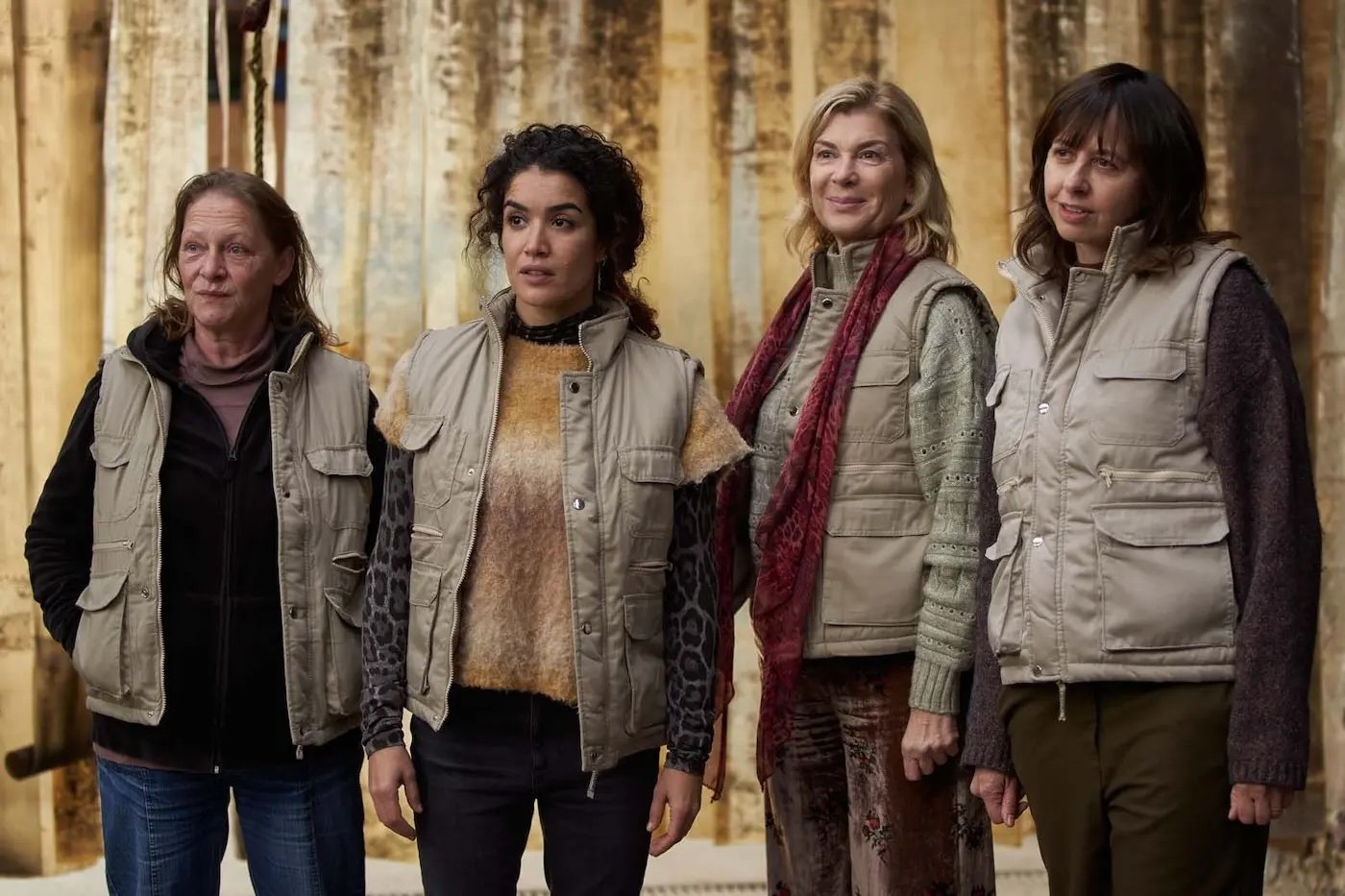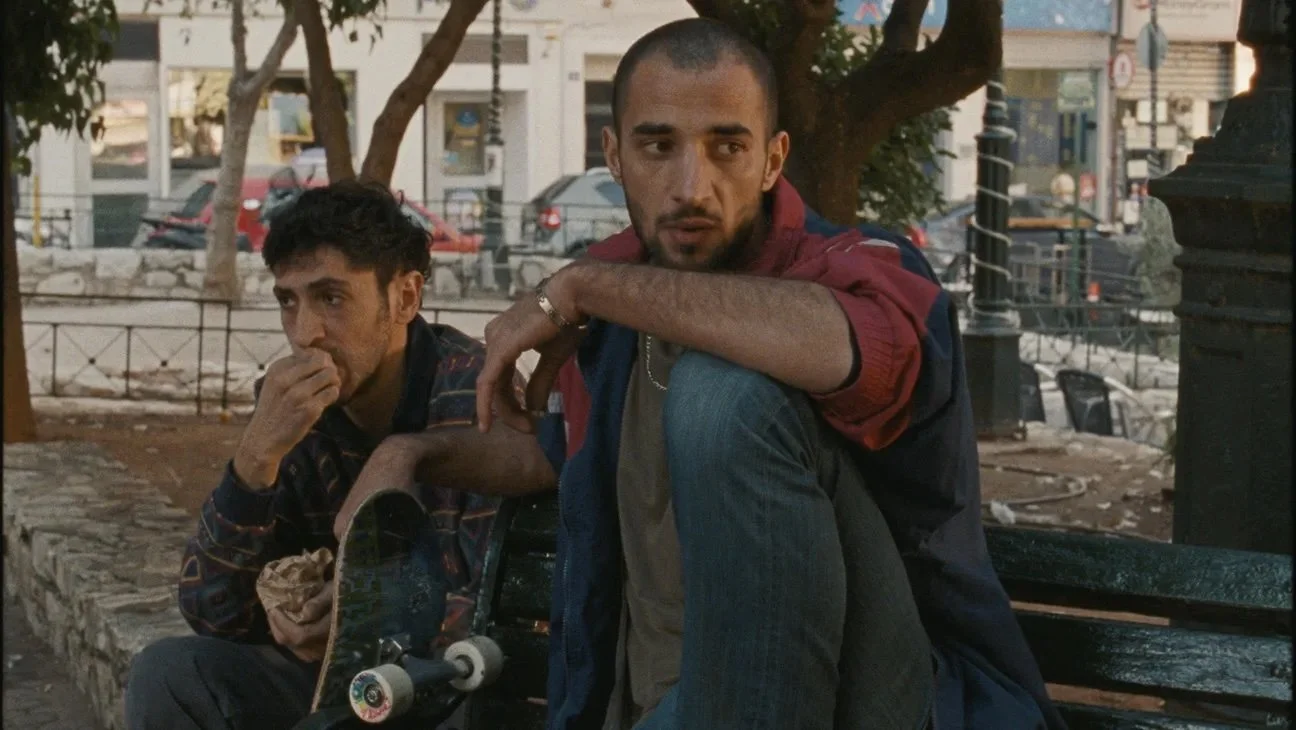Mexican-Canadian director Nicolás Pereda embraces the awkward and elliptical in Fauna
He takes an indirect look at violence and narco fiction in his home country at Vancouver Latin American Film Festival
A brother and a sister reunite in the dry satire Fauna.
Fauna streams online at the Vancouver Latin American Film Festival as part of the Canada Looks South series from August 26 to September 5, and has a live screening at The Cinematheque on August 31 at 8:15 pm.
A CAR WINDS its way down a desolate road in rural Mexico, as a couple struggles to find their way and comments on how dangerous the area must be at night.
A mother and daughter rehearse a searing monologue on the matriarchal bond from Ingmar Bergman’s Autumn Sonata.
An actor reluctantly re-enacts scenes from his bit part in Narcos for his girlfriend’s father and estranged brother.
A man enters a hotel room in search of a clean towel, accidentally terrifying the woman staying there.
These are just some of the often absurd and vaguely unsettling scenes in Fauna, the ninth film by prolific Mexican-Canadian director Nicolás Pereda.
And though they link together in two elliptical plotlines, they only hint at what Fauna may be “about”.
In fact, Pereda and his closeknit cast of actors are indirectly probing the ever-present violence in Mexico and the tropes of popular culture that feed off it—without ever taking those subjects head-on.
“The point of art is not to reveal answers but ask questions,” the director begins, as part of a wide-ranging, thought-provoking phonecall from California. “The point of a film or any artwork is to make audiences think about ideas. So the reason I don’t give my point of view specifically in the film is that I want to propose problems—but not concrete ones. It can be confusing at times, but I’m not trying to be obscure on purpose. The film tries to make people think about their relationship to violence in Mexico and how that world is being constructed by corporations.”
Pereda believes that violence, and the violence happening in Mexico specifically, is so complex, and its truth is so corrupted by official information sources, that it “can’t be spoken about in a straightforward fashion”.
“In a way, I don’t think films are a very good medium for that sort of thing,” he asserts. “It’s hard to explain that sort of complexity in a film.”
And so it is that violence lingers on the perimeter of Fauna.
The film starts by focusing on Luisa (Luisa Pardo) and her actor boyfriend Paco (Francisco Barreiro), who arrive in a small Mexican town to visit her elderly parents and estranged brother Gabino (Gabino Rodríguez). There’s that mention of danger at night on the road, the disappearance of miners in the region, and later, as the film makes its sudden shift into a new, neo-noir storyline with the same actors, talk of a woman who needs to escape a town for her own safety.
Pereda and his committed team of actors construct a series of interactions that express a feeling of unease that gets somewhere close to the emotional tension of the society he’s critiquing.
One of the most memorable is his extended, painfully uncomfortable sequence in a cantina, where Luisa’s father and brother goad Paco into re-enacting a scene from Netflix’s wildly popular Narcos: Mexico. The fact that actor Barreiro has appeared in a small role in the series in real life only adds to the discomfort. In the scene, he insists he has no speaking part—and finally re-enacts a silent pantomime. Pushed further, he resorts to playing out a monologue by Miguel Ángel Félix Gallardo lifted directly from the series—an actor playing another actor interpreting a role.
Nicolás Pereda
The sequence offers exactly the kind of discomfort Pereda relishes. “I find there's something so closely related to my experience—this daily experience of small misunderstandings that are actually funny from the outside but quite treacherous on the inside,” he says. “It’s the kind of comedy where you're not sure if you’re supposed to be laughing.”
Pereda admits there was a bit of tension between him and his cast member as he critiqued the role of Mexican actors in constructing stereotypes around the country’s drug wars.
“In a way, at the time, I was perhaps a bit mean about these things,” he says candidly upon reflection. “I questioned the responsibility of the actors in representing these things—but in a way that’s not a question for me to pose. It’s really stupid to put the responsibility on the individuals. We should put the responsibility on the system. We’ve gotten used to a system of historical representation of, say, Third World issues by First World companies that operate from a neocolonialist perspective—even if the film is produced within the same country. Beyond me not liking these TV shows is the problem that we are learning about our own contemporary history—not just Mexico’s or the Third World’s—through a series of corporations who really only care about making money.”
In Fauna, Pereda also builds a sense of disorientation around the experience of outsiders from the city (and specifically Mexico City, for those who can recognize their accents) arriving in a rural area. That reflects the exact situation of his tight film crew arriving to shoot the movie in the small town, the director relates.
“I was very interested about this idea about how the people from the city envision violence in the rest of the country,” the Mexico City-born, York University-trained filmmaker tells Stir. “Mexico as it is now has a strange mindset. On one hand, in Mexico City you know that the country is at war and that hundreds of people are dying…yet the experience of everyday is totally different in Mexico City. It doesn’t feel like that impending violence is on top of you; you just know it is out there.”
It speaks to Pereda’s skill that these serious, complex truths play out as a kind of deadpan satire, undercut with darkness, that thwarts every narrative expectation. (The film earned a spot on Canada’s Top Ten at TIFF 2020.)
From his end, shooting another feature with a group of friends he’s worked with for 15 years, also happens to have been a blast.
“Everything I’ve said so far," he says, "is really just a justification for having fun and the fact I make these films with these people is because they’re friends."














